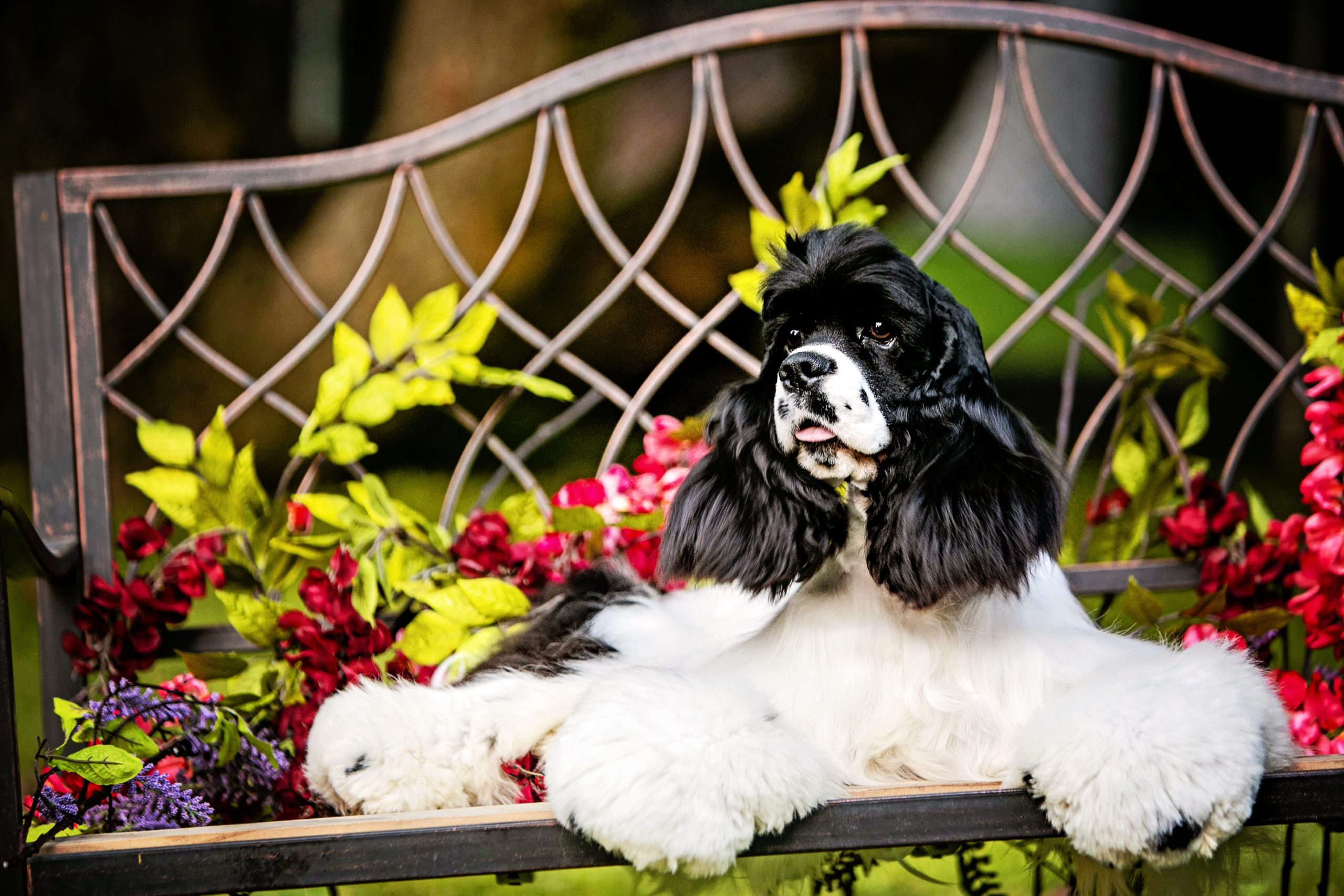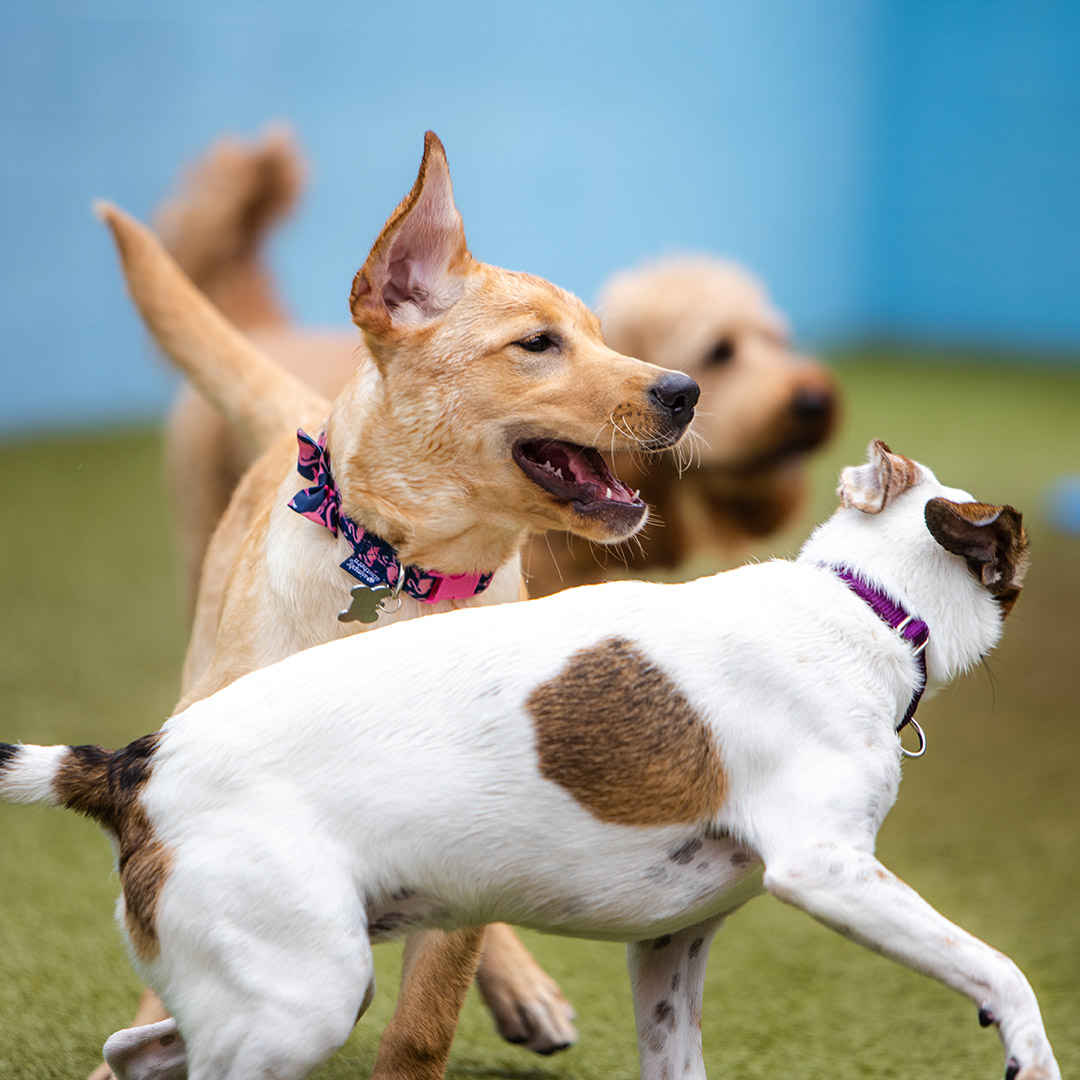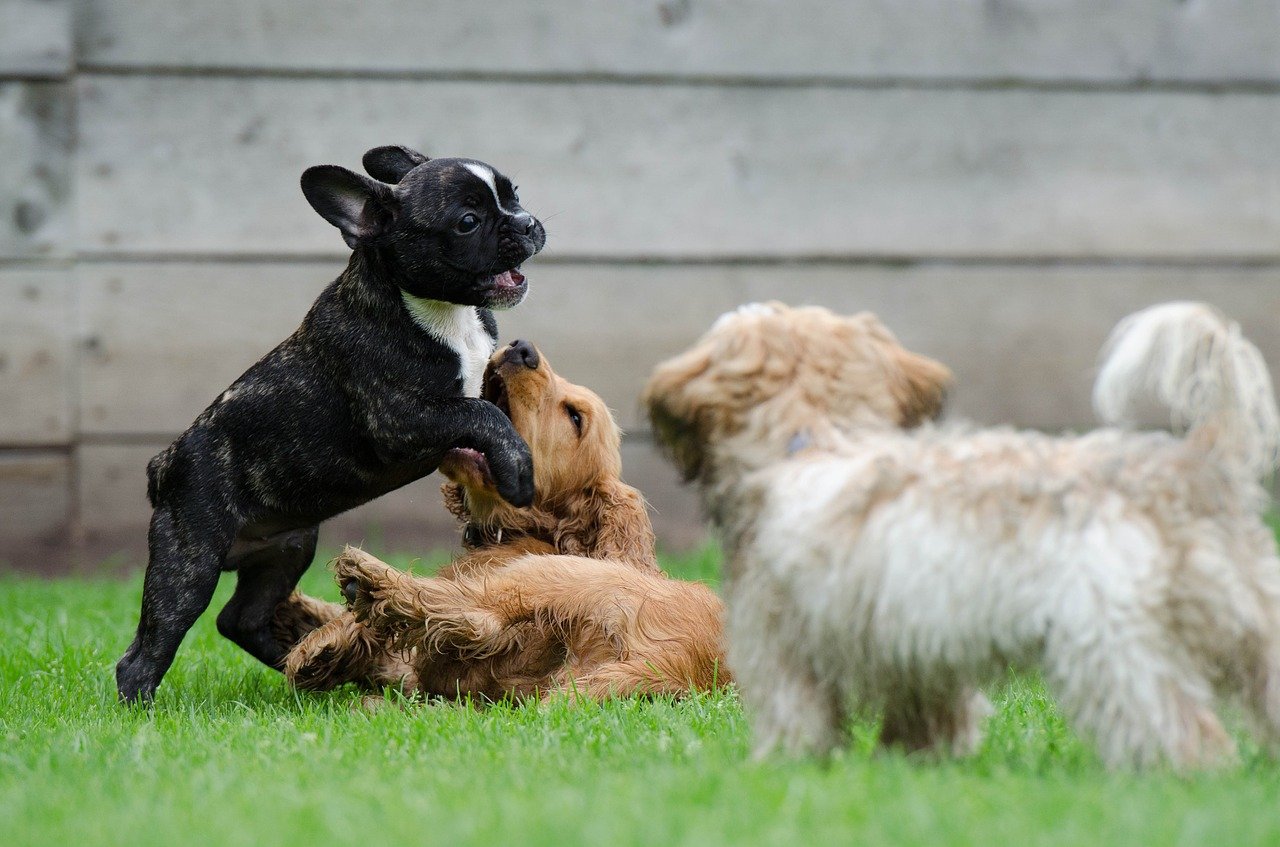Dog daycare can be a great way for dogs to socialize. It offers a space where dogs can interact with others and learn important social skills. So let’s drive in deep: Is Dog Daycare Good for Socialization?
Socialization is crucial for a dog’s development. It helps them feel comfortable around different people and other dogs. Many pet owners wonder if dog daycare is the best place for this. In a daycare setting, dogs can play, explore, and learn from each other.
They develop skills that help them be friendly and confident. This interaction can reduce fear and anxiety when meeting new friends. Understanding the benefits of dog daycare for socialization helps owners make informed choices. In this blog post, we will explore how dog daycare fosters social skills in dogs.
Table of Contents
Introduction To Dog Daycare And Socialization
Dog daycare is becoming popular for many pet owners. It offers a space for dogs to play and learn. Socialization is key for a happy dog. It helps them interact well with other dogs and people. This section explores the rise of dog daycare services and why socialization is important.
The Rise Of Dog Daycare Services
Dog daycare services have grown in recent years. Busy owners need care for their pets. Many options are available now. Here are some reasons for this growth:
- Increased number of pet owners.
- More awareness about pet care.
- Working owners need support for their dogs.
- Socialization benefits for dogs.
Daycares provide structured playtime. Dogs can enjoy group activities. They learn to share space and toys. This supports their emotional health.
Importance Of Socialization For Dogs
Socialization is vital for every dog. It helps them feel comfortable around others. Here are key benefits of socialization:
- Reduces anxiety and fear.
- Helps in learning good behavior.
- Encourages confidence in new situations.
- Improves interaction with other pets.
Well-socialized dogs are happier. They adapt well to changes and new experiences. They are less likely to develop behavioral issues.
Dog daycare offers a safe environment. Dogs can meet new friends. They learn valuable social skills. Owners can trust that their pets are well cared for while they are away.

Credit: cuttinbluefarms.com
Benefits Of Dog Daycare For Social Development
Dog daycare offers many benefits for your pet’s social growth. It helps dogs learn how to interact with others. Socialization is key for building confidence and reducing anxiety. Here are some important aspects of how daycare can enhance your dog’s social skills.
Interactions With Diverse Dog Personalities
Dog daycare brings together many dogs of different breeds and sizes. This variety allows your dog to:
- Learn to communicate with different dog behaviors.
- Understand body language from other dogs.
- Develop friendships with various personalities.
These interactions help your dog become more adaptable. They learn to handle stress in new situations. This is vital for their overall emotional health.
Human Guidance In Social Settings
At daycare, trained staff supervise playtime. Their guidance is essential for safe interactions. Staff members help by:
- Monitoring play to prevent conflicts.
- Encouraging positive behaviors.
- Teaching dogs to share and take turns.
This human oversight creates a safe space. Dogs feel secure and can explore their social skills. They learn important lessons that last a lifetime.
Recognizing Quality Dog Daycare Facilities
Choosing a good dog daycare is important. It affects your dog’s socialization. Quality facilities help dogs learn to interact with others. They also ensure safety and comfort. Here are key factors to consider.
Staff Qualifications And Dog-to-staff Ratio
Check the staff’s experience and training. Well-trained staff understand dog behavior. They can spot issues before they escalate. A low dog-to-staff ratio is crucial. This ensures that each dog gets attention.
- Look for staff with certifications in pet care.
- Experience in dog training is a plus.
- A ratio of 5 dogs to 1 staff member is ideal.
This allows for better supervision and care. Dogs are less likely to feel stressed or neglected.
Facility Amenities And Safety Measures
Quality daycare facilities have great amenities. They should provide a safe and clean environment. Look for these features:
| Amenity | Description |
|---|---|
| Fenced play areas | Secure spaces for dogs to play. |
| Indoor and outdoor areas | Options for different weather conditions. |
| Rest areas | Quiet spots for dogs to relax. |
| Regular sanitation | Clean facilities to prevent illness. |
Safety measures are equally important. Look for:
- Regular health checks for all dogs.
- Emergency protocols in place.
- Secure entry and exit points.
A facility that prioritizes safety helps your dog enjoy their time. Happy dogs are well-socialized dogs.
Potential Drawbacks Of Dog Daycare
Dog daycare can be a great option for some pets. Yet, it has potential drawbacks. Not all dogs thrive in a daycare setting. Here are some key issues to consider.
Stress And Overstimulation In Some Dogs
Some dogs may feel stressed in daycare. The noise and activity can be overwhelming. Signs of stress include:
- Excessive barking
- Hiding or trying to escape
- Loss of appetite
- Destructive behavior
Dogs that are shy or anxious may struggle more. They might not enjoy socializing with many dogs. It’s important to know your dog’s personality. Some dogs do better in quieter environments.
Risks Of Illness And Behavioral Issues
Daycare can expose dogs to illnesses. Common diseases include:
| Disease | Symptoms |
|---|---|
| Canine Parvovirus | Vomiting, diarrhea, lethargy |
| kennel cough | Coughing, sneezing, nasal discharge |
Behavioral issues can also arise. Dogs may learn bad habits from others. These include:
- Excessive barking
- Aggression towards other dogs
- Destructive behavior at home
Monitoring your dog’s behavior after daycare is crucial. Early detection can help prevent issues.
Choosing The Right Dog Daycare
Finding the best dog daycare can be challenging. The right daycare can help your dog socialize well. It can also provide a safe space for play. Here are some key points to consider.
Evaluating Temperament Compatibility
Understanding your dog’s temperament is vital. Not all dogs enjoy the same environment. Assess your dog’s behavior around other dogs.
- Does your dog enjoy playing with others?
- Is your dog shy or aggressive?
- How does your dog react to new situations?
Ask the daycare about their assessment process. A good daycare will evaluate each dog’s behavior before acceptance. This ensures a good mix of personalities.
Assessing Daycare Policies And Practices
Daycare policies are important for safety. Check the following practices:
| Policy | Importance |
|---|---|
| Vaccination Requirements | Protects all dogs from diseases |
| Staff-to-Dog Ratio | Ensures adequate supervision |
| Play Area Safety | Minimizes risk of injury |
| Emergency Protocols | Prepares for unexpected events |
Visit the daycare to observe. Note how staff interacts with dogs. Look for signs of a clean and safe environment. A well-run daycare fosters a positive atmosphere.
Choosing the right daycare helps your dog thrive. Socialization is key for a happy, healthy pet.

Credit: luckydogbarkandbrew.com
Preparing Your Dog For Daycare
Getting your dog ready for daycare is important. Proper preparation helps your dog adjust well. It also ensures they enjoy their time with other dogs. Here are some key steps to consider.
Essential Training Before Enrollment
Training sets the foundation for a positive daycare experience. Focus on basic commands. These commands help your dog respond better in social situations.
- Sit: Teaches your dog to wait and be calm.
- Stay: Helps your dog remain in one spot.
- Come: Encourages your dog to return to you.
- Leave it: Teaches your dog to ignore distractions.
Socialization is also key. Expose your dog to different people and pets. This will help them feel more comfortable in daycare.
Acclimation Strategies For New Environments
Gradual exposure is vital for your dog’s comfort. Start by visiting the daycare without leaving your dog.
- Take short trips to the daycare. Let your dog explore.
- Introduce your dog to staff members. Familiar faces reduce anxiety.
- Observe other dogs from a distance. This helps your dog feel secure.
Use positive reinforcement during these visits. Bring treats or toys your dog loves. This makes the experience enjoyable.
Consider scheduling a trial day. It allows your dog to experience daycare. Monitor their behavior and comfort level.
Preparing your dog for daycare takes time. With the right steps, your dog will thrive in a social environment.
Monitoring Your Dog’s Progress
Watching your dog grow and learn is exciting. Monitoring their progress in daycare helps you understand their social skills. You can see how they interact with other dogs. This is key to a happy and healthy pet.
Tracking Socialization Milestones
Tracking your dog’s socialization milestones is important. These milestones show how well your dog adapts to new experiences. Here are some key milestones to monitor:
- First Day: Observe initial reactions to other dogs.
- First Play Session: Watch for engagement in play.
- Response to New Environments: Notice how they handle different spaces.
- Behavior Changes: Look for signs of confidence or fear.
- Building Friendships: See if they form bonds with other dogs.
Keep a journal to note these milestones. This will help you see progress over time.
When To Reconsider Daycare Options
Sometimes, a daycare may not fit your dog’s needs. Look for signs that indicate a change is necessary:
- Frequent Anxiety: If your dog shows signs of stress.
- Aggressive Behavior: If they become aggressive towards others.
- Withdrawal: If they isolate themselves often.
- Lack of Improvement: If social skills do not improve.
Trust your instincts. Your dog’s well-being is the priority. Speak with daycare staff about your concerns. They can provide insights on your dog’s behavior.
Alternative Socialization Strategies
Socializing dogs is vital for their happiness and well-being. While dog daycare is helpful, other options exist. These methods can also encourage friendly behavior. Let’s explore some effective alternatives.
Dog Parks And Playdates
Dog parks offer a great place for socialization. Here, dogs can meet others in a safe environment. Playdates with friends’ dogs can also be beneficial. These interactions help dogs learn to play and share.
- Benefits of Dog Parks:
- Open space for running.
- Variety of dogs to meet.
- Opportunity to learn social cues.
Tips for visiting dog parks:
- Choose a time when the park is less crowded.
- Observe your dog’s behavior with others.
- Ensure your dog is up to date on vaccinations.
Training Classes And Workshops
Training classes can be excellent for socialization. They provide structured environments for learning. Dogs interact with other dogs while learning new commands.
| Type of Class | Benefits |
|---|---|
| Basic Obedience | Teaches commands and good behavior. |
| Agility Classes | Encourages teamwork and physical exercise. |
| Puppy Socialization | Focuses on interactions with other puppies. |
Workshops also offer unique learning experiences. They often focus on specific skills. This helps dogs gain confidence while meeting others.
Conclusion: Tailoring Daycare To Your Dog’s Needs
Every dog has unique social needs. Dog daycare can help, but it must fit your dog. Understanding your dog’s personality is key. This section explores how to tailor daycare for your furry friend.
Understanding Individual Socialization Paths
Not all dogs socialize the same way. Each dog has a unique path. Some dogs thrive in busy environments. Others feel stressed in large groups. Consider the following:
- Temperament: Is your dog shy or outgoing?
- Past experiences: Has your dog had good or bad social interactions?
- Age: Puppies may need different attention than older dogs.
Observe your dog in different settings. This helps identify what they enjoy. Tailor daycare activities to fit their style. Choose smaller groups for shy dogs. Larger groups may suit outgoing dogs better.
The Role Of Owners In Ongoing Social Development
Owners play a vital role in their dog’s social growth. You can guide them through various experiences. Consider these actions:
- Regular interaction: Take your dog to parks or playdates.
- Positive reinforcement: Reward good behavior during social situations.
- Training: Teach basic commands to enhance confidence.
Communication is essential. Keep in touch with daycare staff. Share your dog’s behavior and any concerns. Collaborate on a plan to support your dog’s social needs.
Tailoring daycare to your dog’s needs leads to better social skills. It creates a happier and more confident pet. Invest time in understanding your dog. The benefits are worth it.

Credit: www.houndslounge.com
Frequently Asked Questions
Is Dog Daycare Beneficial For Socialization?
Yes, dog daycare is highly beneficial for socialization. It provides dogs with opportunities to interact with other dogs and people. This exposure helps them develop better social skills and reduce anxiety. Regular interactions can lead to well-adjusted, confident dogs who are comfortable in various situations.
How Does Dog Daycare Improve Behavior?
Dog daycare can significantly improve dog behavior. It offers structured playtime and mental stimulation, which helps to reduce boredom. Engaging with other dogs teaches them proper play and communication skills. As a result, dogs often display less destructive behavior at home.
What Age Is Best For Dog Daycare?
The best age for dog daycare is around 4-6 months. At this stage, puppies are more receptive to learning social skills. Early exposure to other dogs helps them develop confidence and adaptability. However, it’s crucial to ensure vaccinations are up to date before attending daycare.
Can Shy Dogs Benefit From Daycare?
Yes, shy dogs can greatly benefit from daycare. The environment encourages them to interact at their own pace. Staff can provide gentle guidance to help build their confidence. Over time, shy dogs often become more comfortable and social around other dogs.
Conclusion
Dog daycare can be a great choice for socialization. Dogs learn to interact with others in a safe space. They build confidence and reduce anxiety. Regular playtime helps them develop important skills. Owners often notice happier, more balanced pets. Finding the right daycare is key.
Look for a place that matches your dog’s needs. With careful selection, daycare can enhance your dog’s social life. Consider giving it a try. Your furry friend might just love it.



